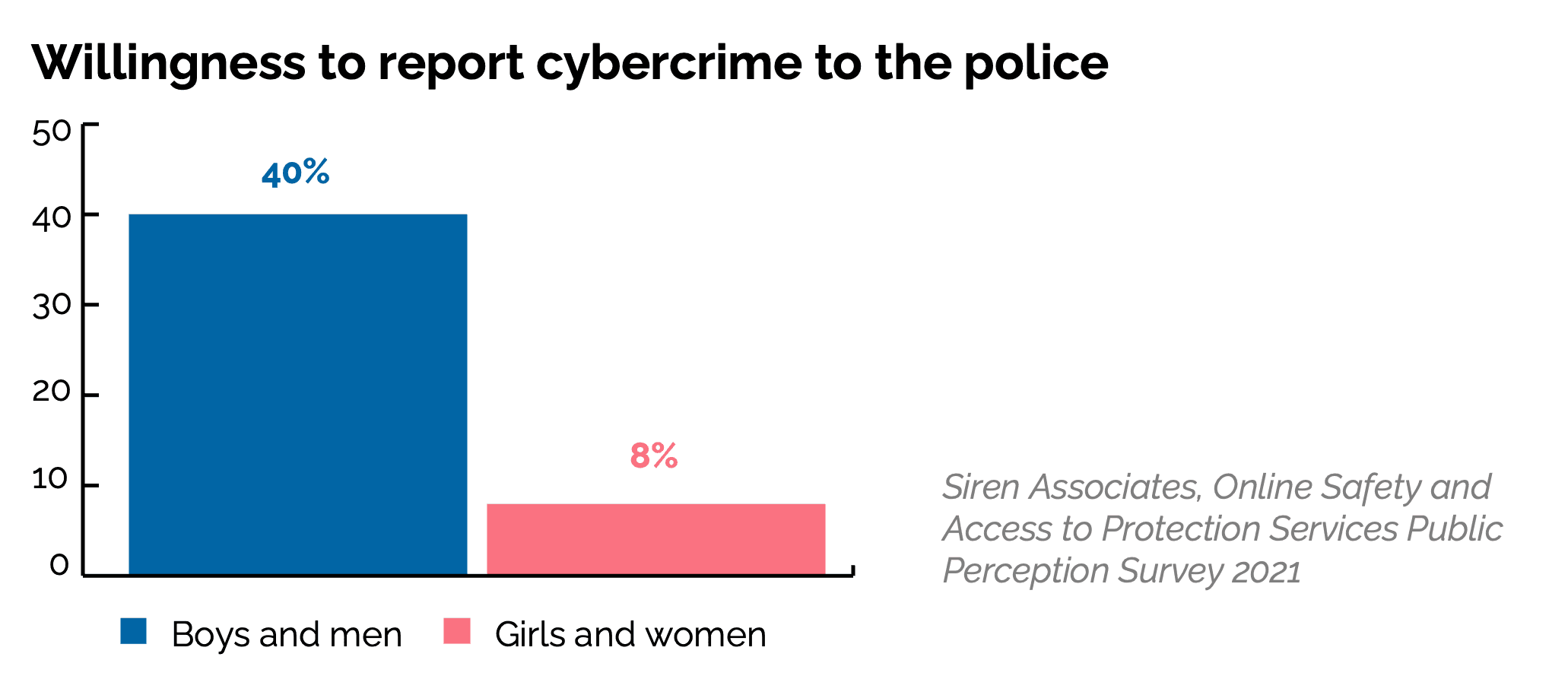Case study
Tackling online SGBV through partnerships and digital innovation
Working with local communities and police to make it easier for affected people to get help.

Challenge
Online harassment, bullying, and blackmail is a problem faced by many, but too often access to confidential online protection services is limited. Social stigmas and intimidation prevent many people, especially women and girls, from reporting cybercrimes. Recognising this issue, Jordan’s national police, the Public Security Directorate (PSD) and a group of local NGOs and community-based organisations sought to lower the barriers to accessing help.
Approach
Between 2019 and 2022, Siren conducted qualitative and quantitative research to better understand people’s levels of vulnerability to online blackmail, harassment and abuse, and their ability to get help. This included:
12 focus group discussions
2 representative surveys of over 1,100 respondents each (2021 and 2022)
A youth-led participatory research study of 76 young people
Key informant interviews with 21 people

The gendering of access to cybercrime reporting and protection services was clear from the research. In response, Siren delivered programming between 2021 and 2022 that lowered the barriers for victims, particularly women and girls, to report incidents and obtain help. Core activities included:
Capacity building for six local CBOs on raising awareness around interpersonal cybercrime and linking victims to protection actors
Developing “safe spaces” within the CBO premises
Supporting the CBOs to conduct safety initiatives
Increasing capacities of security agencies to deal with online SGBV
Training PSD investigators on cybercrime investigations.
Supporting the PSD to organise safety campaigns around online SGBV
Working with the Arab Women’s Organisation, a regional women’s rights NGO, Siren also developed an AI chatbot, Tareek. Tareek offers two core functions: education and signposting. It provides users with information about different forms of cybercrime and how to stay safe online. It also confidentially connects victims of cybercrime with relevant service providers, including the PSD for reporting, and community-based organisations for psychosocial support. User privacy is a key feature, with the ability to maintain anonymity when seeking help.
Outcomes

>1,405 messages submitted via Tareek in its first three months
At least 280 people referred to service providers via Tareek
13 percentage point increase in perceptions of online safety and women’s knowledge of protection services between 2021 and 2022
400% increase in daily cybercrime reporting, from two to ten cases per day